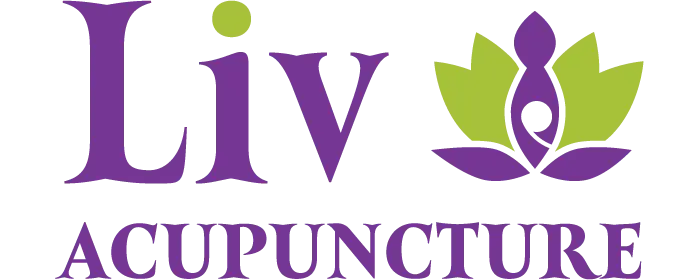Acupuncture FAQ
Frequently Asked Questions
We understand that starting a new wellness journey can come with questions, and we’re here to provide the clarity you need. Below, you’ll find answers to some of the most common inquiries about our services, treatments, and what to expect at Liv Acupuncture. If you don’t see your question listed, feel free to contact us directly. We’re always happy to help!
Yes, there is a growing body of scientific evidence supporting the efficacy of acupuncture for various conditions, including pain management, stress reduction, and nausea. Numerous studies have demonstrated acupuncture’s effects on the nervous system, including its ability to stimulate the release of pain-relieving chemicals in the brain.
Absolutely. For a free consultation, please call us at (201) 261-3900 during normal business hours (Monday-Friday, 9am-6pm).
Liv Acupuncture of Paramus
106 East Ridgewood Avenue
Paramus, NJ 07652
Yes, I do accept insurance. Coverage for acupuncture varies by insurance company and policy. Some insurance plans cover acupuncture for certain conditions, while others may not. Liv Acupuncture will verify your coverage beforehand. We are considered an out of network provider.
- All major credit cards
- FSA (Flexible Spending Account) cards
- HSA (Health Savings Account) cards
- Personal checks
- Cash
- Zelle or Venmo
Our hours of operation are Monday-Friday, 9am-6pm.
Livnat (Libby) Hai-Choron, L.Ac is a NJ & NY, NCCAOM board certified, licensed acupuncturist, passionate about helping clients restore holistic wellness. I earned my biology degree from Ramapo College of New Jersey before pursuing a career in the healing arts. My training at the Eastern School of Acupuncture and Traditional Medicine equipped me to care for patients using both modern and ancient techniques.
During your first session, the acupuncturist will ask about your health history and perform a physical examination according to traditional Chinese medicine principles. Based on the assessment, they will insert thin, sterile needles into specific points on your body. Many people feel minimal discomfort and find the experience relaxing.
Acupuncture is a traditional Chinese medicine technique that involves inserting thin needles into specific points on the body to stimulate healing and promote balance. It is based on the concept of qi (vital energy) flowing through meridians (pathways) in the body. Acupuncture is believed to restore the flow of qi, thereby improving health and wellness. It’s used to treat a wide range of conditions, including pain, stress, and various health issues.
Acupuncture is used to treat a variety of conditions such as chronic pain (including headaches, back pain, and neck pain), stress, anxiety, depression, insomnia, digestive issues, menstrual cramps, infertility, and more. The World Health Organization recognizes acupuncture as effective for over 50 medical problems.
Yes, when performed by a trained and licensed practitioner, acupuncture is considered safe. The risks of acupuncture are low if you have a competent, certified acupuncture practitioner using sterile needles. Adverse effects are rare and usually minor, such as bruising or soreness at needle sites.
Side effects of acupuncture are generally mild and rare. Some patients may experience minor bruising, bleeding, or soreness at the needle sites. Occasionally, people may feel dizzy or faint. These effects are typically temporary and can often be mitigated by ensuring you’re well-rested and have eaten before your session.
The number of treatments varies depending on the individual and the condition being treated. Some people experience significant improvement after just one or two sessions, while others may need a series of treatments to achieve desired results. Liv Acupuncture will assess your condition and create a treatment plan tailored to your specific needs.
Frequency of treatment depends on your condition and how you respond to acupuncture. Initially, you might need treatments once or twice a week. As your condition improves, you may need fewer treatments spaced further apart. Liv Acupuncture will recommend a schedule that best suits your needs.
An acupuncture session typically lasts between 45 to 60 minutes. The first session may be longer due to the initial consultation and assessment. During the treatment, needles are usually in place for 20 to 30 minutes.
Most people report feeling minimal pain as the needles are inserted. Some feel no pain at all. Once the needles are in place, there should be no significant discomfort. You may feel a mild aching sensation or warmth at the needle sites.
Acupuncture needles are much thinner than the needles used for injections or blood draws. You may feel a brief, sharp sensation upon insertion, but many people feel little to no discomfort. Once the needles are in place, you may experience a sensation of heaviness, tingling, or warmth.
Yes, acupuncture needles are sterile and single-use. They are manufactured, packaged, and shipped in sterile conditions and are disposed of after one use, ensuring the safety and hygiene of the acupuncture practice.
Acupuncture is a versatile, evidence-based therapy that helps relieve a wide range of physical, emotional, and neurological conditions. Common conditions acupuncture is known to effectively treat or support include:
Chronic and acute pain (back, neck, joint, shoulder, knee, sciatica)
Migraines and headaches
Arthritis and inflammation
Stress, anxiety, and depression
Insomnia and sleep disorders
Digestive issues (IBS, bloating, constipation, acid reflux)
Allergies and sinus problems
Menstrual and hormonal imbalances
Fertility and reproductive health
Fatigue and low energy
Post-operative recovery
Respiratory issues (asthma, bronchitis, chronic cough)
Neurological conditions (neuropathy, post-stroke support)
Immune system support and detoxification
Acupuncture addresses both symptoms and root causes, making it a powerful option for holistic, long-term wellness.
To prepare for an acupuncture session, wear loose, comfortable clothing and make sure you’ve eaten a light meal beforehand. Avoid caffeine and alcohol, and come with an open mind ready to relax.
Wear loose, comfortable clothing that can be easily rolled up to access various points on your body. Some treatments may require access to your back, arms, legs, and abdomen.
After an acupuncture session, it’s recommended to avoid strenuous physical activity, heavy meals, caffeine, and alcohol. Drinking plenty of water and resting can help maximize the benefits of the treatment.
The response to acupuncture varies from person to person. Some individuals may notice an improvement immediately after the first session, while others may see gradual changes after several sessions. Chronic conditions often require more time and sessions to address.
Yes, children can safely receive acupuncture. Pediatric acupuncture is used to treat a range of conditions, from digestive issues to allergies and even behavioral problems. Treatments for children are often shorter and use fewer needles.
While acupuncture is versatile, there are conditions where it may not be recommended, such as in the case of certain skin infections, for patients with pacemakers (if electrical stimulation is used), or in certain cases of pregnancy. It’s crucial to disclose your complete health history with us before your first treatment.
Acupuncture needles are sterile, single-use, and disposable, eliminating the need for sterilization equipment. This practice ensures the highest level of hygiene and safety for patients.
Acupuncture complements conventional medical treatments by addressing symptoms and side effects, improving the body’s natural healing abilities, and promoting overall well-being. It is often used in conjunction with physical therapy, medical treatments for chronic illnesses, and as part of a comprehensive pain management plan.
Acupuncture is a traditional Chinese medicine practice that aims to balance the body’s energy flow to improve overall health. Dry needling, on the other hand, is a modern technique used by physical therapists to relieve muscle pain and tightness by stimulating trigger points. While both use thin needles, their underlying philosophies and goals differ.
Liv Acupuncture integrates cupping and moxibustion techniques alongside needle insertion to enhance treatment effects. Cupping therapy involves creating suction on the skin to promote blood flow. Moxibustion involves burning a small herb near the skin to warm acupuncture points. These methods can complement needle therapy to treat various conditions.
Acupuncture has a rich history dating back over 2,000 years, originating in ancient China. It’s a key component of traditional Chinese medicine and was developed based on the theory of qi (vital energy) flowing through meridians in the body. Acupuncture aims to restore balance and health by manipulating this energy flow.
Acupuncture stimulates the nervous system, triggering the release of various substances, including endorphins and neurotransmitters, which can alter pain perception, boost immune response, and regulate physiological functions. This stimulation can promote healing, reduce pain, and enhance overall wellness.
Acupuncturists place needles based on the patient’s specific conditions and the underlying principles of acupuncture. Points are chosen along the body’s meridians, where qi is believed to flow, targeting areas related to the patient’s symptoms. The selection of points is tailored to each individual’s needs to achieve the best results.
The philosophy of acupuncture is rooted in the concept of balance and harmony within the body and between the body and the environment. It is based on traditional Chinese medicine principles that emphasize the flow of qi (energy) through meridians (pathways) in the body. The goal of acupuncture is to restore this balance, thereby promoting health and healing.
Acupuncture can be safely received during pregnancy to manage various symptoms like morning sickness, lower back pain, and stress. However, certain acupuncture points should be avoided during pregnancy. It’s important to inform your acupuncturist if you are pregnant, as treatments will be adjusted accordingly.
For patients who are afraid of needles, acupuncturists can use alternative methods such as acupressure, where pressure is applied to acupuncture points instead of needles. Many practitioners are also skilled in using extremely thin needles and gentle techniques to minimize discomfort and anxiety.
Acupuncture treatments are highly personalized based on the individual’s symptoms, health condition, and overall constitution. The acupuncturist will conduct a thorough assessment, including health history and physical examination, to identify the specific imbalances and choose appropriate acupuncture points for treatment.

